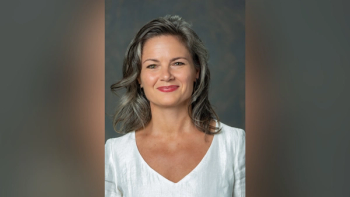
Results from a retrospective study found that Amtagvi (lifileucel) achieved a 48.8% objective response rate in patients with advanced melanoma who had previously received immune checkpoint inhibitors.

Results from a retrospective study found that Amtagvi (lifileucel) achieved a 48.8% objective response rate in patients with advanced melanoma who had previously received immune checkpoint inhibitors.

In this video interview, Ramita Tandon, chief biopharma officer at Walgreens, discusses the operational investments required to activate pharmacies as clinical trial sites, including staff training, regulatory coordination, and patient-facing technology.

In the new EXPrESSIVE clinical trial program, Merck will evaluate MK-8527, a once-monthly, oral PrEP therapy, in populations at high risk of HIV-1 infection, including adolescent girls and women in sub-Saharan Africa.

Results from the Phase III CAHtalyst show that patients treated with Crenessity for classic congenital adrenal hyperplasia achieved and maintained lower, more physiologic glucocorticoid doses while keeping key adrenal biomarkers at or below baseline levels.

In the BaxHTN Phase III study, AstraZeneca’s baxdrostat demonstrated statistically significant and clinically meaningful reductions in systolic blood pressure in patients with uncontrolled or treatment-resistant hypertension.

In this video interview, Ramita Tandon, chief biopharma officer at Walgreens, reflects on the company’s three-year evolution as a clinical trials partner, highlighting its pharmacy-led model and community-driven approach to trial access and participation.

Why a fundamental reimagining of how clinical studies operate is still necessary to achieve a true paradigm shift—and shed the cycle of reliance on incremental gains.

Why a fundamental reimagining of how clinical studies operate is still necessary to achieve a true paradigm shift—and shed the cycle of reliance on incremental gains.

By publishing more than 200 complete response letters, the FDA is offering new visibility into the issues that most often delay drug approvals, including safety concerns, trial design flaws, and manufacturing gaps.

The FDA has granted orphan status to Arcus Biosciences’ CD73 inhibitor quemliclustat for metastatic pancreatic cancer, as the global PRISM-1 Phase III trial nears full enrollment following promising survival data from ARC-8.

In this video interview, Heather Horville, solutions consultant at Greenphire, emphasizes the growing need for clinical operations to embed patient-centric services—from consent through final visit—to improve retention and overall trial success.

In the P304 Phase III study, Moderna’s mRNA-1010 demonstrated a 26.6% relative efficacy over a standard-dose flu vaccine in adults aged 50+, showing consistent protection across strains and age groups.

Results from the Phase III EMBARK trial show that in combination with leuprolide, Xtandi (enzalutamide) demonstrated a statistically significant and clinically meaningful overall survival benefit in men with non-metastatic hormone-sensitive prostate cancer and high-risk biochemical recurrence.

Results from the Phase III QWINT-1 trial show that Eli Lilly’s once-weekly insulin efsitora is noninferior to once-daily glargine in reducing HbA1c among insulin-naïve adults with type 2 diabetes, offering a simplified fixed-dose regimen with fewer hypoglycemic events and less treatment burden.

In this video interview, Heather Horville, solutions consultant at Greenphire, explains how upfront reimbursement, travel stipends, and flexible support services can empower more patients—especially those from underserved communities—to confidently enroll and stay in clinical trials.

In final data from the Phase III ENLIVEN study, Turalio (pexidartinib) demonstrated durable tumor responses and a consistent safety profile in patients with symptomatic TGCT not amenable to surgery.

Results from the Phase III KEYNOTE-689 trial show that adding perioperative Keytruda (pembrolizumab) to standard-of-care radiotherapy improves event-free survival in patients with resectable, locally advanced head and neck squamous cell carcinoma, potentially setting a new benchmark for treatment in this setting.

In this video interview, Heather Horville, solutions consultant at Greenphire, discusses how clinical teams can boost participant retention in lengthy or complex trials through strategies like personalized engagement, stipends tied to ePRO diaries, and concierge services that offer one-to-one human connection.

Outdated regulations and inflexible sponsor processes are hampering clinical trial recruitment, but empowering sites with modern, compliant marketing tools could turn the tide.

The Phase I/IIa CLARICO trial of OpCT-001 marks the first clinical trial of an investigational induced pluripotent stem cell-derived therapy for primary photoreceptor diseases.

In this video interview, Heather Horville, solutions consultant at Greenphire, shares how patient advocacy, localized insights, and real-world logistics can help clinical operations teams design studies that are more accessible to rural and minority populations.

Boston Scientific’s Farapulse Pulsed Field Ablation System is now approved for treating persistent atrial fibrillation, following 12-month data from the ADVANTAGE AF trial showing strong safety, high freedom from AF, and no major complications.

In this video interview, Heather Horville, solutions consultant at Greenphire, discusses how growing financial and logistical burdens on participants are threatening study timelines and data quality—and why planning for retention earlier is becoming a clinops imperative.

How the application of artificial intelligence, broader use of real-world evidence, decentralized clinical trials, master protocols, and risk-based quality monitoring, together with strong ethical oversight and increased collaboration, are contributing to better healthcare delivery and strengthening the role of clinical research in driving global health progress.

Why future-ready pharma companies must embrace AI-driven, real-time decision-making.

In this video interview, Kyle McAllister, co-founder, CEO, Trially, shares real-world examples of AI transforming clinical trial recruitment.

Results from the Phase III FORTITUDE-101 trial showed that bemarituzumab combined with chemotherapy demonstrated both statistical significance and clinical relevance in previously untreated patients with unresectable locally advanced or metastatic gastric or gastroesophageal junction cancer who are FGFR2b-positive and HER2-negative.

Merck’s bid to update Winrevair’s label advances with FDA priority review, backed by Phase III ZENITH data showing a 76% reduction in major morbidity and mortality events in patients with pulmonary arterial hypertension.

In this video interview, Kyle McAllister, co-founder, CEO, Trially, explains how AI is stepping in to fill staffing gaps in clinical research—streamlining patient identification, real-time feasibility assessments, and automated prescreening to help sites stay operational and efficient despite budget cuts.

How clinical operations teams can close the gap between controlled trial results and real-world adoption by generating evidence in broader, more representative patient populations.